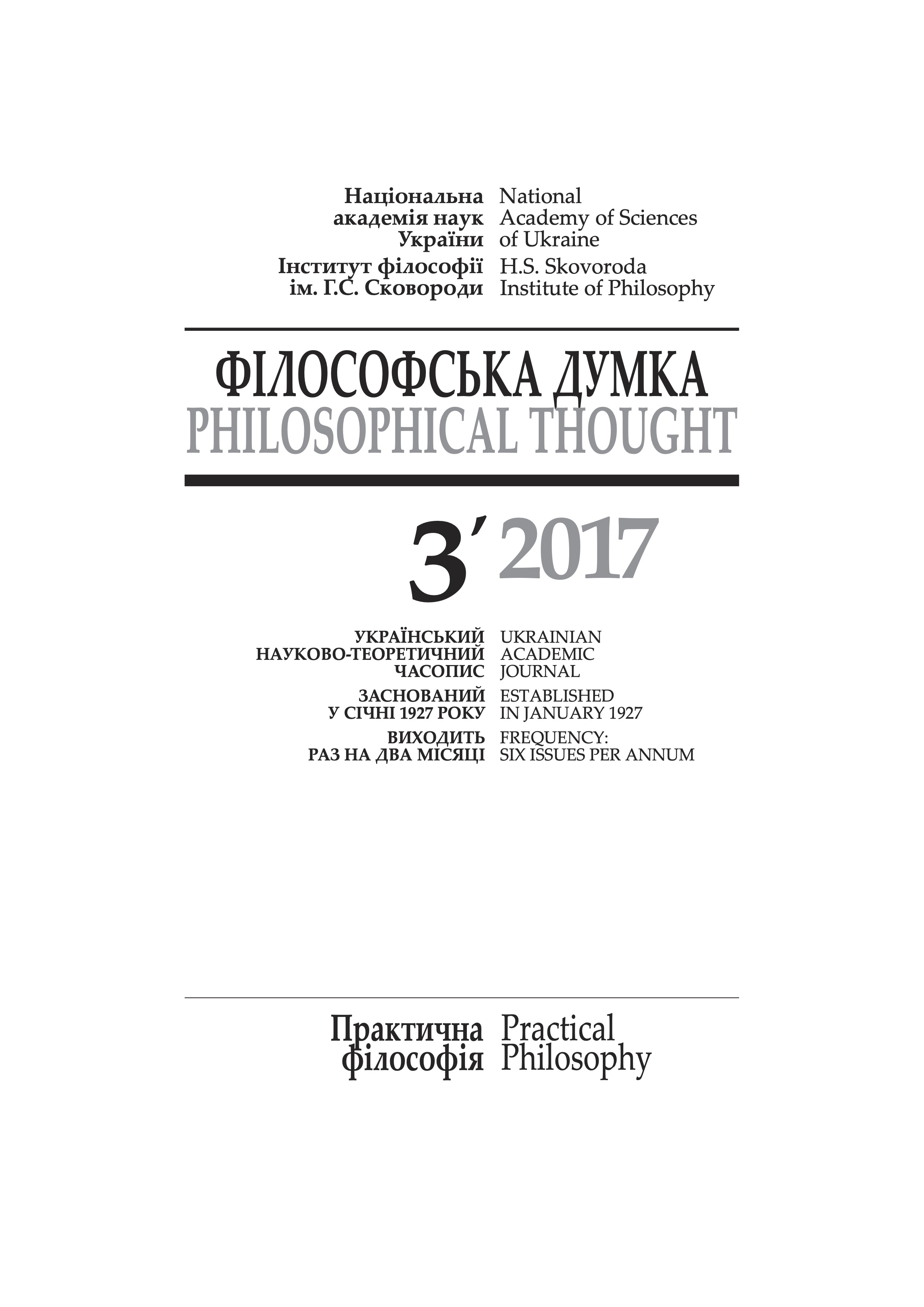On the concept of calling
Keywords:
the call, phenomenon of calling, professional choice, teaching, lived experience, motivation, responding, self-actualization, social benefit, transcendence, goodness, aim, beingAbstract
The initially religious concept of calling formed in Hebrew and Christian tradition has been secularized starting from the Reformation to its present identification with professional activity which is reflected in modern languages such as German or English. The contemporary western scholars, in particular J. VanOosting, urge to distinguish between the professional and the vocational choice. According to other researcher, J. Bigham, calling is attached mainly to «spiritual» motivation. Accomplished by the author of the article research of opinions of Ukrainian school-leaving youth, pedagogics students and teachers in 2016 showed the importance of the idea of calling for them. As a result of the study the phenomenon of calling was empirically operationalized as a complex of motivating factors: Passion — Abilities — Realization — Goodness (or Benefit). The structural integrity of calling experience is set by the factor of aim. The following definition is formulated: calling is a meaningful unity of desires, abilities, their realization and evaluation according to understanding of the aim of personal, social or transcendent goodness. The question about application of Aristotle’s notion of “entelechia”, ἐντελέχεια, for the understanding of calling is offered for further discussion. The direction of the following phenomenological analyses of calling is considered, in particular, in the research of the phenomena of call and responding.
References
Bigham, J.T., Smith, S.J. (2008). Called to teach: interpreting the phenomenon of calling as a motivating factor. In: Faculty Publications and Presentations (paper 99, 8-2-2008). http://
digitalcommons.liberty.edu/educ_fac_pubs/99.
Jastrow, M. (2006). Dictionary of the Targumim, the Talmud Babli and Yerushalmi, and the Midrashic Literature (English and Hebrew Edition), (first publ.: London, NewYork, 1903). http://www.tyndalearchive.com/tabs/jastrow,
Muliarchuk, Ye. (2017). The experience of calling: educational aspects and cross-cultural comparisons. In: Future Human Image (vol. 7, p. 86–100). Kyiv, International Society of Philosophy and Cosmology.
Muliarchuk, Ye. (2017a). Teaching as a calling. [In Ukrainian] In: Scientific magazine of Dragomanov National Pedagogical University. Series 5: “Educational sciences: reality and prospects” (vol. 57, p. 106–115). Kyiv: Dragomanov NPU. [= Muliarchuk 2017a]
Muliarchuk, Ye. (2017b). Calling in the minds of contemporary Ukrainians: individual opinions and the general structure of the phenomenon. [In Ukrainian]. In: Hileya: naukovyy visnyk. Zbirnyk naukovykh prats’ (vol. 118 (3), p. 251–256). Kyiv: Dragomanov NPU. [= Muliarchuk 2017b]
Ruchka, А.O. (2015).Values and their transformation in sociological perspective. [In Ukrainian] In: Variations of culture: sociological prospects. — Кyiv: Institute of Sociology, NAS of Ukraine, 41–75. [= Ручка 2015]
Skovoroda, H. (1994). Works : 2 vols. [In Ukrainian]. Harvard Library of Early Ukrainian Literature. [= Skovoroda 1994]
The Book of Sirach: http://www.usccb.org/bible/books-of-the-bible/index.cfm#Sirach.
VanOosting, J. (2005). And the flesh became word: reflections theological and aesthetic. NewYork.
Weber, M. (1963). Die Protestantische Ethik und der Geist des Kapitalismus. In: Weber M. Gesammelte Aufsatze zur Religionssoziologie. Tübingen.
Weber, M. (1980). Politik als Beruf. In: Weber M. Gesammelte Politische Schriften (p. 505–560). Tübingen.
Weber, M. (1952). Wissenschaft als Beruf. In: Weber M. Gesammelte Aufsatze zur Wissenschaftslehre (p. 572–597). Tübingen.
Downloads
-
PDF (Українська)
Downloads: 166
Published
How to Cite
Issue
Section
License
Authors who publish with this journal agree to the following terms:
- Authors retain copyright and grant the journal right of first publication.
- Authors are able to enter into separate, additional contractual arrangements for the non-exclusive distribution of the journal's published version of the work (e.g., post it to an institutional repository or publish it in a book), with an acknowledgement of its initial publication in this journal.
- Authors are permitted and encouraged to post their work online (e.g., in institutional repositories or on their website) prior to and during the submission process, as it can lead to productive exchanges, as well as earlier and greater citation of published work (See The Effect of Open Access).


